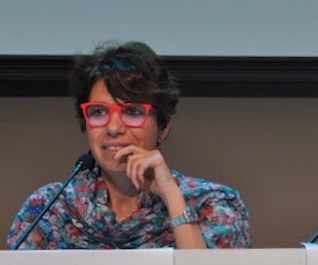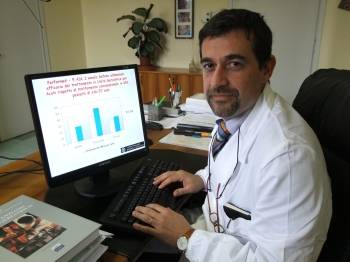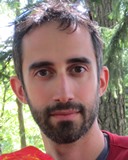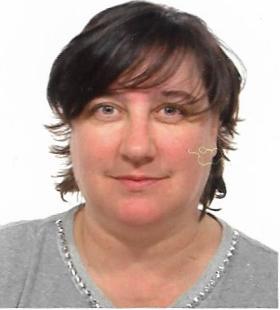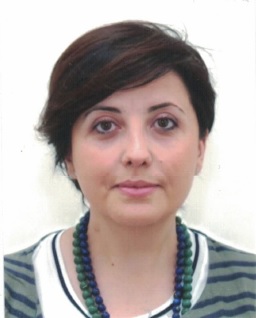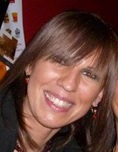Studying at the University of Verona
Here you can find information on the organisational aspects of the Programme, lecture timetables, learning activities and useful contact details for your time at the University, from enrolment to graduation.
Academic calendar
The academic calendar shows the deadlines and scheduled events that are relevant to students, teaching and technical-administrative staff of the University. Public holidays and University closures are also indicated. The academic year normally begins on 1 October each year and ends on 30 September of the following year.
Course calendar
The Academic Calendar sets out the degree programme lecture and exam timetables, as well as the relevant university closure dates..
| Period | From | To |
|---|---|---|
| 1 SEMESTRE PROFESSIONI SANITARIE | Oct 3, 2022 | Dec 23, 2022 |
| 1° e 2° semestre (corsi annuali) PROFESSIONI SANITARIE | Oct 3, 2022 | Sep 30, 2023 |
| 2 SEMESTRE PROFESSIONI SANITARIE | Jan 9, 2023 | Sep 30, 2023 |
Exam calendar
Exam dates and rounds are managed by the relevant Medicine Teaching and Student Services Unit.
To view all the exam sessions available, please use the Exam dashboard on ESSE3.
If you forgot your login details or have problems logging in, please contact the relevant IT HelpDesk, or check the login details recovery web page.
Should you have any doubts or questions, please check the Enrollment FAQs
Academic staff
 luca.manescalchi@univr.it
luca.manescalchi@univr.it
 serena.pancheri@univr.it
serena.pancheri@univr.it
 anna.pedrinolla@univr.it
anna.pedrinolla@univr.it
 cinzia.vivori@apss.tn.it
cinzia.vivori@apss.tn.it
Study Plan
The Study Plan includes all modules, teaching and learning activities that each student will need to undertake during their time at the University.
Please select your Study Plan based on your enrollment year.
1° Year
| Modules | Credits | TAF | SSD |
|---|
2° Year activated in the A.Y. 2023/2024
| Modules | Credits | TAF | SSD |
|---|
3° Year It will be activated in the A.Y. 2024/2025
| Modules | Credits | TAF | SSD |
|---|
| Modules | Credits | TAF | SSD |
|---|
| Modules | Credits | TAF | SSD |
|---|
| Modules | Credits | TAF | SSD |
|---|
Legend | Type of training activity (TTA)
TAF (Type of Educational Activity) All courses and activities are classified into different types of educational activities, indicated by a letter.
Clinical practice (2nd year) (2023/2024)
Teaching code
4S01546
Teacher
Coordinator
Credits
25
Language
Italian
Scientific Disciplinary Sector (SSD)
MED/50 - APPLIED MEDICAL TECHNOLOGY AND METHODOLOGY
Period
1° e 2° semestre (corsi annuali) PROFESSIONE SANITARIE dal Oct 2, 2023 al Sep 30, 2024.
Courses Single
Not Authorized
Learning objectives
The first year of internship includes an initial exposure to health contexts of prevention at Health Districts, Addiction Services, “A.M.A.” Self-Mutual Aid Centers, Epidemiological Observatory, Territorial Operational Unit of the Italian Society of Medicine of Migration, Counselling centres for the individual, the couple and the family for the development of assessment and surveillance skills.
In the 2nd year, in the laboratory activities and in the professional internship, students will experience specific prevention interventions, screening, vaccination campaigns and counselling, and specific health education projects and interventions. They will begin to be familiar with the consultation of guidelines, reading of scientific articles.
The 3rd year is aimed at learning methodologies to promote health within schools, workplaces, care institutions, addiction recovery centres and specific settings such as prisons.
Students will challenge their selves in designing public health emergency plans with particular attention to the various forms and methods of risk communication to the population and information on environmental risk factors in all possible contexts of interest.
They will learn a multi-professional approach, the organization of services and territorial networks that promote health, the value of involving proximity figures and the creation of intersectoral networks and alliances, and the main aspects of planning and conducting epidemiological studies, and performing critical analysis of the results of published studies.
Learning outcomes
- Participate in vaccination campaigns to improve vaccination coverage of the population in the area.
- Apply the main methods of investigation of epidemics and pandemics.
- Participate in educational and screening campaigns.
- Identify community facilities and resources:
- Train in the manoeuvres of first aid, detection and monitoring of vital signs and cardiopulmonary resuscitation.
- Carry out surveillance, prophylaxis and containment of infectious diseases.
- Design and implement actions of primary and secondary prevention of infectious diseases, occupational diseases, chronic degenerative diseases, cancer, etc.. using models and actions based on scientific evidence.
- Perform manoeuvres of first aid, detection and monitoring of vital signs and cardiopulmonary resuscitation and adopt during the preventive techniques (vaccination, screening, etc.) ways to reduce pain procedural.
- Design innovative educational methods, with social channels and languages closer to the target in order to spread the culture of prevention.
- Activate methodologies of network work, in order to integrate the work and health expertise with the social one.
- Conduct a motivational interview and counselling.
- Evaluate with qualitative-quantitative methods the outcomes of educational and counselling interventions.
- Collaborate in using the main information and communication technologies (ICT) that support health promotion and education and use the most common ones.
- Plan prevention programs in areas such as nutrition, fitness, weight control, smoking cessation, aging, addictions, and stress management to develop life skills.
- Activate networking methodologies in order to integrate health and social work expertise.
- Design and collaborate on health promotion interventions aimed at specific groups or patients and settings.
- Manage educational interventions to individuals or groups in different settings (community, school, etc.).
- Communicate in an appropriate way (verbal, non-verbal, written), establishing relationships with individual users, groups, families, businesses and the community for the purpose of promoting health.
- Apply individual and group counselling techniques for health promotion and education (empowerment).
- Collaborate actively in the dissemination of correct messages, supported by scientific evidence, countering the spread of contradictory and / or misleading information (fake news).
- Use, with other professionals, dashboards/databases/archives of health and administrative data to support and inform decisions.
- Seek the information needed to resolve problems or uncertainties regarding professional practice, critically selecting sources.
- Use and repurpose the self-study plan (contract learning) to identify own learning needs, seek opportunities, and demonstrate the skills achieved.
Examination methods: The evaluation of the internship activity will be:
- Formative: with the purpose of appreciating the evolution and progress of the student within the continuum of his/her path; the student becomes aware of his/her learning progress and helped to orient and design learning towards the expected educational objectives. It is carried out by the student (self-assessment), by peers and by experts (feedback). It is structured at the end of each internship experience through the formative evaluation form and an individual interview with the student.
- Certifying: consists of an annual evaluation, which documents the level achieved with respect to the objectives expected per year. This evaluation will be a synthesis of the formative evaluations of the single internship experiences, the profit achieved in the report, the self-assessment and the performance demonstrated during the internship examination.
The internship examination consists of a structured examination in stations, each of which evaluates in an objective and standardized manner specific technical, design, relational, and educational skills chosen from the pool of educational objectives related to the year of the course.
The final evaluation will be a collegial evaluation, formalized with the final internship examination, carried out by a Commission composed of the Coordinator of the bachelor degree, academic teachers and tutors.
Prerequisites and basic notions
The student who successfully concludes the year's internship with an hourly debt on the expected number of hours (not exceeding 40 hours) may be admitted to the annual internship exam if the absence has not compromised the achievement of the year's objectives.
Program
The clinical learning model The aims and models of internship The tutorial report The triad of clinical learning The learning objectives Safety in internship and safe internship
Bibliography
Didactic methods
- briefing: a few days before the start of the experience conducted by the coordinator to prepare the student from a cognitive, emotional and safety point of view for the experience itself - debriefing in small groups during the experience period - assignment of learning activities consistent with the training objectives - participatory observation and gradually taking on an active role in supervised "doing" - questioning, thinking aloud and feedback - contract learning - written reports - exercises
Learning assessment procedures
The evaluation of the internship activity will be: - formative with the aim of appreciating the evolution and progress of the student within the continuum of his/her path, the student becomes aware of his/her learning progress and through it is helped to orient and plan the learning towards the expected educational objectives. It is carried out by the student (self-evaluation), among peers and by experts (feedback). It is structured at the end of each individual internship experience through the formative evaluation form and an individual interview with the student. - certification is an annual evaluation, which documents the level achieved with respect to the expected objectives for the year. This evaluation will be the synthesis of the formative evaluations of the individual internship experiences, the profit achieved in the report, the self-evaluation and the performances demonstrated during the internship exam. The internship exam consists of a structured exam in stations, each of which evaluates specific technical, planning, relational and educational skills using objective and standardized methods, chosen randomly from the pool of training objectives relating to the course year. The final evaluation will be a collegial evaluation, formalized with the final internship exam, carried out by a Commission composed of the Coordinator of professional teaching, teachers and tutors.
Evaluation criteria
The level of assistance, technical, operational and relational skills achieved during the internship, the commitment and quality of the written documents, the application of theory to practice.
Criteria for the composition of the final grade
The evaluation of the internship activity will be: - formative with the aim of appreciating the evolution and progress of the student within the continuum of his/her path, the student becomes aware of his/her learning progress and through it is helped to orient and plan the learning towards the expected educational objectives. It is carried out by the student (self-evaluation), among peers and by experts (feedback). It is structured at the end of each individual internship experience through the formative evaluation form and an individual interview with the student. - certification is an annual evaluation, which documents the level achieved with respect to the expected objectives for the year. This evaluation expressed in thirtieths (30mi) will be the synthesis of: - formative evaluations of the individual internship experiences (approximately 60/70%): the elements considered are the constant evolution of the student and his commitment, the degree of complexity of the competence and the degree of "prerequisite" for achieving the skills expected for the following year. - achievement of reports and/or self-learning plans (10-20%) and - performance demonstrated during the internship exam (20%). It is carried out at the end of each year of the course to decide whether the student can access the following year or the following year's internships depending on what the teaching regulations provide. The evaluation uses a multi-method approach, it can be differentiated into internal and external internship and global evaluation methods
Exam language
Italiano
Career prospects
Module/Programme news
News for students
There you will find information, resources and services useful during your time at the University (Student’s exam record, your study plan on ESSE3, Distance Learning courses, university email account, office forms, administrative procedures, etc.). You can log into MyUnivr with your GIA login details: only in this way will you be able to receive notification of all the notices from your teachers and your secretariat via email and soon also via the Univr app.
Student login and resources
Orario lezioni
Documents
| Title | Info File |
|---|---|
|
|
pdf, it, 1031 KB, 27/09/23 |
|
|
pdf, it, 431 KB, 11/10/23 |
|
|
pdf, it, 39 KB, 27/03/24 |
|
|
pdf, it, 42 KB, 24/04/24 |
|
|
pdf, it, 1453 KB, 07/02/24 |
Prova Finale
Per essere ammessi alla prova finale occorre avere conseguito tutti i crediti nelle attività formative previste dal piano degli studi, compresi quelli relativi all’attività di tirocinio. Alla preparazione della tesi sono assegnati 7 CFU. La prova è organizzata, con decreto del Ministro dell'Istruzione, dell'Università e della Ricerca di concerto con il Ministro del Lavoro, della Salute e delle Politiche Sociali, in due sessioni definite a livello nazionale.
La prova finale, con valore di esame di Stato abilitante, si compone di:
- una prova pratica nel corso della quale lo studente deve dimostrare di aver acquisito le conoscenze e abilità teorico-pratiche e tecnico-operative proprie dello specifico profilo professionale;
- la redazione di un elaborato di tesi e sua discussione.
Si è ammessi alla discussione dell’elaborato di Tesi solo se si è superata positivamente la prova pratica. Lo studente avrà la supervisione di un docente del Corso di Laurea, detto Relatore, ed eventuali correlatori anche esterni al Corso di Laurea. Scopo della tesi è quello di impegnare lo studente in un lavoro di formalizzazione, progettazione e ricerca, che contribuisca sostanzialmente al completamento della sua formazione professionale e scientifica. Il contenuto della tesi deve essere inerente a tematiche o discipline strettamente correlate al profilo professionale. La valutazione della tesi sarà basata sui seguenti criteri: livello di approfondimento del lavoro svolto, contributo critico personale, accuratezza della metodologia adottata per lo sviluppo della tematica.
Il punteggio finale di Laurea, espresso in cento/decimi con eventuale lode, è formato dalla media ponderata rapportata a 110 dei voti conseguiti negli esami di profitto, dalla somma delle valutazioni ottenute nella prova pratica (fino ad un massimo di 5 punti) e nella discussione della Tesi (fino ad un massimo di 6 punti). La commissione di Laurea potrà attribuire ulteriori punti anche in base a:
- presenza di eventuali lodi ottenute negli esami sostenuti;
- partecipazione ai programmi Erasmus fino a 2 punti aggiuntivi;
- laurea entro i termini della durata normale del corso 1 punto aggiuntivi.
È prevista la possibilità per lo studente di redigere l'elaborato in lingua inglese.
La scadenza per la presentazione della domanda di laurea e relativa documentazione, verrà indicata negli avvisi dello specifico Corso di laurea
Tirocinio professionalizzante
Finalità del Tirocinio Il tirocinio nella formazione dell’assistente sanitario è una modalità insostituibile di apprendimento del ruolo professionale, attraverso la sperimentazione pratica e l’integrazione dei saperi teorici con l’esperienza concreta. Permette allo studente di sviluppare gradualmente un’identità professionale, di mettere in pratica i principi teorici e le conoscenze disciplinari in diverse situazioni, di recuperare dalla pratica i principi adottati, di acquisire capacità di prendere decisioni in un contesto reale.
I 60 crediti minimi riservati al tirocinio sono da intendersi come impegno complessivo necessario allo studente per raggiungere le competenze professionali “core” previste dal rispettivo profilo professionale.
Il tirocinio contempla varie attività formative:
· esperienza diretta nei servizi,
· attività tutoriali di preparazione e rielaborazione dell’esperienza (briefing e debriefing),
· esercitazioni e simulazioni in laboratorio che solitamente precedono l’esperienza diretta nei servizi al fine di garantire sicurezza verso gli utenti e gli studenti,
· studio guidato, autoapprendimento, elaborazione di piani, progetti e relazioni.
Nel corso del triennio lo studente sperimenta diverse esperienze di tirocinio accompagnate e supervisionate da tutor e professionisti esperti, finalizzate ad acquisire abilità definite dal profilo professionale dell’assistente sanitario e specifiche dell’assistenza sanitaria. L’esperienza di tirocinio si realizza attraverso la graduale sperimentazione diretta di attività educative e preventive, la comunicazione diretta con l’utente, il confronto con gli esperti, i professionisti, il tutor e gli altri studenti; si articola anche in momenti di decifrazione e rielaborazione delle situazioni incontrate e di quanto pianificato e realizzato.
La valutazione delle competenze acquisite in tirocinio. Le esperienze di tirocinio devono essere progettate, valutate e documentate nel percorso dello studente. Durante ogni esperienza di tirocinio lo studente riceve valutazioni formative sui suoi progressi sia attraverso colloqui e schede di valutazione. Al termine di ciascun anno di corso viene effettuata una valutazione sommativa (certificativa) per accertare i livelli raggiunti dallo studente nello sviluppo delle competenze professionali attese. La valutazione viene effettuata da una Commissione presieduta dal Coordinatore della Didattica Professionale (CDP), e composta da almeno un docente e da un Tutor professionale. Tale valutazione è la sintesi delle valutazioni formative, via via, documentate durante l’anno di corso, il profitto raggiunto negli elaborati scritti e le performance delle abilità tecniche e relazionali dimostrate all’esame di tirocinio che può essere realizzato con esami simulati, colloqui, prove scritte applicative. L’esame annuale di tirocinio prevede un unico appello per anno accademico, salvo particolari situazioni per le quali la commissione didattica potrà concedere un appello straordinario. La valutazione sommativa del tirocinio sarà espressa e registrata nella carriera in trentesimi in base al livello di raggiungimento degli obiettivi. Le modalità di registrazione del voto di profitto sono:
1. “assente” pre-iscritto che non ha frequentato alcuna esperienza di tirocinio;
2. “ritirato” sospensione durante il tirocinio per problemi di salute, gravidanza o per motivazioni personali;
3. “insufficiente” non raggiungimento del livello atteso negli obiettivi formativi (anche se lo studente ha sospeso la frequenza al tirocinio o non ha sostenuto l’esame finale).
Prerequisiti di accesso al tirocinio. Il Coordinatore della Didattica Professionale (CDP), ammette alla frequenza dell’esperienza di tirocinio previsto per l’anno di corso, gli studenti che hanno frequentato regolarmente:
· le attività teoriche, in particolare gli insegnamenti delle discipline professionali dell’anno in corso e dell’anno precedente
· laboratori professionali ritenuti propedeutici al tirocinio
Documents
| Title | Info File |
|---|---|
|
|
pdf, it, 92 KB, 13/09/23 |

 +39 045 8027657
+39 045 8027657
